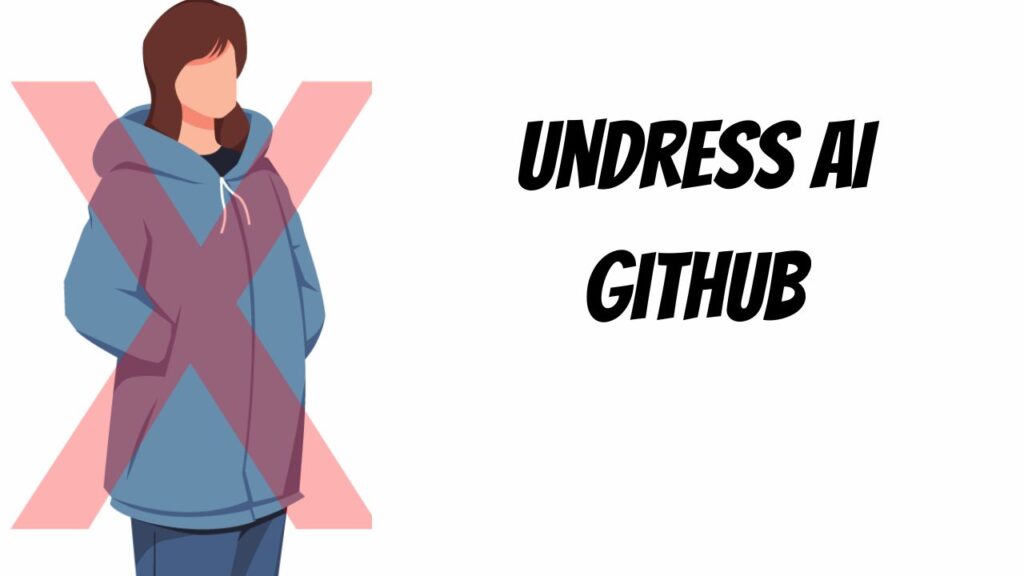
Artificial Intelligence (AI) brings many wonders, but it also presents challenges. A controversial AI service named Undress AI claimed it could create fake nude photos of people. GitHub, a popular platform for hosting and sharing code, had this project. But due to ethical concerns and rules being broken, GitHub decided to remove Undress AI GitHub Repositories from its site.
This article talks about the reasons behind that decision and the concerns surrounding this Undress AI project.You may also check out our in-depth Undress AI Review.
Undress AI Github: A Controversial AI Repositories
GitHub is a site where developers store and share their code. Some of these codes were for a tool named Undress AI, which said it could make fake nude photos with AI. This project became controversial because of the potential misuse.
Many people talked about issues like privacy and if it’s right to use tech this way. Due to these worries and breaking GitHub’s rules, the Undress AI codes were removed. GitHub has clear guidelines, and this project didn’t follow them, especially around consent and content creation.
What is Undress AI
Undress AI is a tool that uses artificial intelligence (AI) to make fake images where people appear to be undressed. This service is part of a bigger trend called Deepfake technology. Deepfakes use AI to change or create very real-looking photos and sounds.

While the results can be very convincing, there are big worries about using this tech. Some people might use it in wrong ways, like making pictures without permission or spreading lies. This can hurt someone’s image or cause other problems. It’s important to know that Undress AI isn’t the only tool doing this, and such tools lead to many questions about what’s right and wrong in tech.
Why Undress AI GitHub Repositories Were Deleted
GitHub, a leading platform for code storage, recently took down the Undress AI GitHub Repositories. This tool, which utilized machine-learning techniques known as GANs, was designed to create counterfeit images where people appeared without clothing.
Although ‘deepfake’ technologies might have legitimate uses in areas like art or entertainment, they can also be misused in harmful ways, such as misinformation or for deceptive purposes.
Prioritizing ethical standards, GitHub chose not to endorse content that could potentially violate individual rights or privacy. The removal of Undress AI GitHub Repositories highlights GitHub’s commitment to protect its community from hazardous materials.
Why GitHub Removes Unethical Repositories
GitHub, as a premier platform for code hosting, prioritizes ethical standards in its operations. Their decision to remove the Undress AI GitHub Repositories, which used advanced GANs for creating misleading images, showcases this commitment.
While ‘deepfake‘ tools might find appropriate use in entertainment or art, their potential misuse, like spreading misinformation or violating privacy, is alarming. GitHub’s actions are rooted in its aim to ensure a safe, respectful, and ethical digital space, emphasizing protection against technology’s wrongful exploitation. The removal of such unethical repositories solidifies GitHub’s dedication to upholding community integrity.
FAQs About Undress AI GitHub Repositories
Q.What is Undress AI?
Undress AI is a tool that uses artificial intelligence (AI) to make fake images where people appear to be undressed
Q.What is Undress AI GitHub Repositories?
Undress AI GitHub Repositories were Undress AI repositories that was hosted on Github so that anybody may utilize it.
Q.Is there Undress AI GitHub Apk?
No, GitHub took action and deleted Undress AI GitHub Repositories due to unethical usage, which is why there is no Undress AI GitHub Apk.
Q: Is Undress AI currently available on GitHub?
No, Github has deleted it due to privacy violations and ethical concern as per GitHub’s policies.
Conclusion
GitHub’s action on Undress AI showcases the urgency of ethical AI and user privacy. As AI grows, so does the need for a balanced digital world rooted in ethics. While Undress AI offers intriguing possibilities, it’s vital to prioritize individual privacy and understand associated risks.